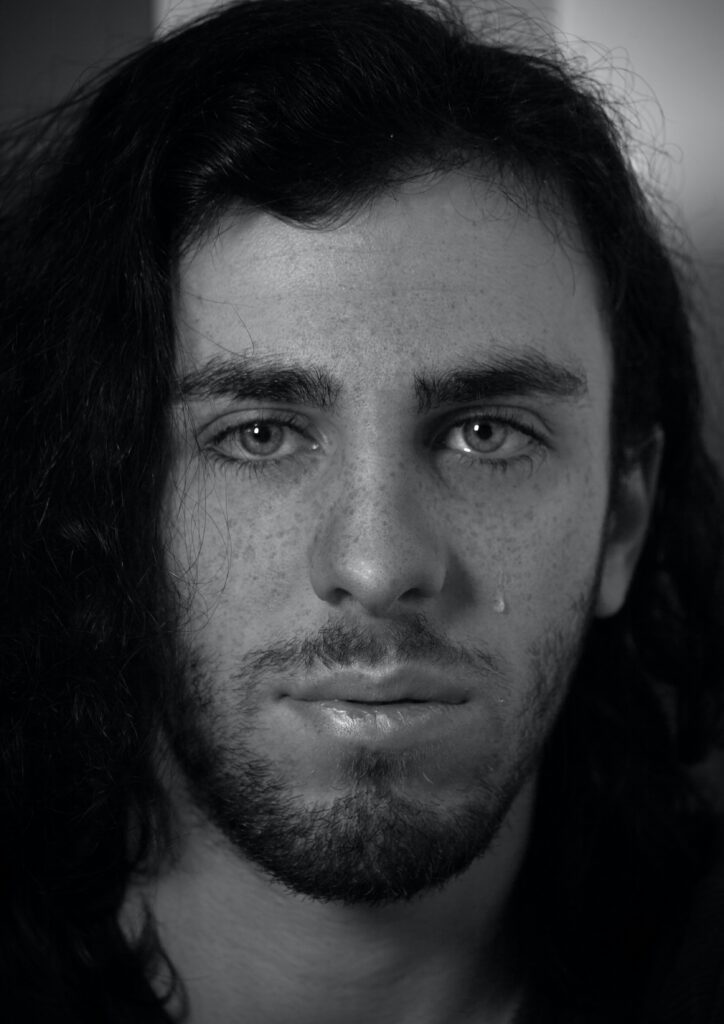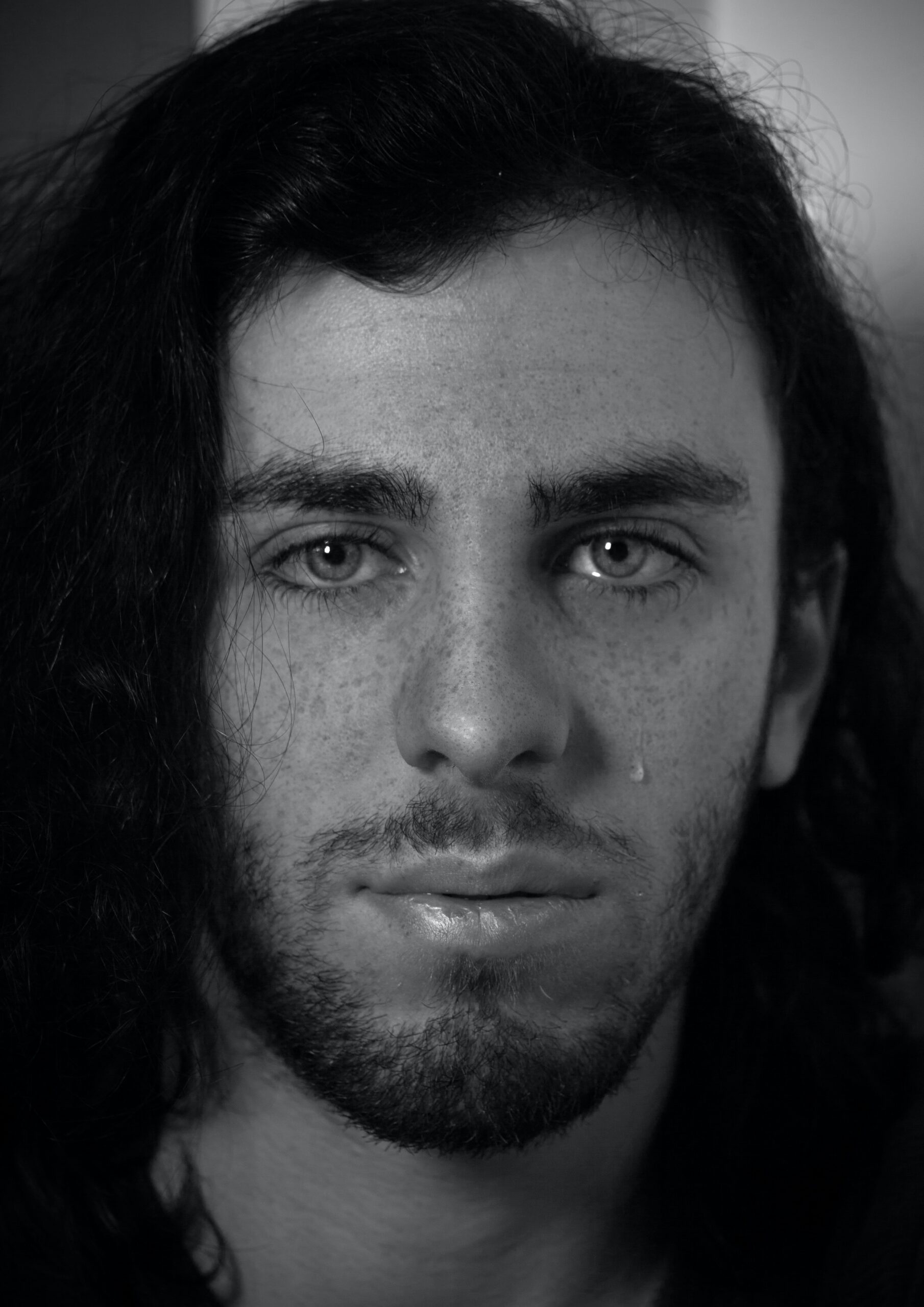‘I Need To Ask God Why’

Almost no one is Israel is untouched by the horrific killings on that early morning, October 7th. Daniel Levy, a 34-year-old physician and father of two, was killed in his kibbutz near the Gaza border as he tried to minister to the wounded. Overcome with grief, with anger and rage at the wonton savagery, Daniel’s brother Michael Levy said, “I don’t say this out loud, but I need to ask God why—why was this good man murdered?”
As novelist Peter DeVries lamented, “Why? is the question mark that is twisted like a fishhook in the heart.” And, in the face of suffering, all our Whys are ultimately aimed at God.
In crying his Why out loud, Michael Levy stands in a long line of Jews who know how to call God to task. The Psalmist demands, Why do you hide yourself in time of trouble? The whole book of Job is one giant interrogation. Adam, Eve, Abraham, Sarah, Moses, David, Elijah, John the Baptist—they all question God. Even the Son of God questions God: Why have you forsaken me?
Here’s a good why: Why are we—the inheritors of such a lineage—so afraid to ask God why He can’t be any better? Are we trying to out-spiritualize Jesus?
It happened many years ago, but still sits vivid in my mind. The phone rang about 7:00 pm. A man in my parish had eaten his supper and gone up to sit in bed and read a book, and his wife had found him lying there as if he’d simply dozed off. Man in his 50’s. I drove to the hospital and met his widow outside the ER door. As I walked toward her, she made as if to hug me but then pulled away. “I’m not all right with this!” she wept. “I don’t accept this from God!”
It’s not just OK to ask God Why. It’s necessary, required. Some, we must acknowledge, will move from that anguished Why? into a place of doubt or rejection. All we can do is reverence their suffering and hold them in love. But it is also possible to join that multitude of God-grillers who go on to deeper and more profound levels of wisdom, compassion and understanding, who finally accept both the glory and ruin of life, who can hold others in the throes of a violent Why? and not let go.

After reading/viewing the barbarian, sadistic methods Hamas used to kill/imprison/rape innocent Jews (babies!) I have 0 sympathy for them and anyone that doesn’t speak out against them. I hope Israel unleashes its full power down on them – they are Old Testament after all – I’m so angry.
Thanks for giving voice to your anger, Matt. I don’t think answering horror with horror is right–or even works. But your raw expression of anger sounds just like some of those psalms I mentioned–where anger flies wild and raw, and it’s not just “ok”–it ends up as Holy Scripture.
I agree and I disagree David. I don’t like feeling this hatred but I’m having a hard time helping it. For some reason I’m getting mad at FB/Instagram every time I see a “look at me at the beach” or such post while these atrocities are going on, and I really don’t have much skin in the game. I feel a kinship with the Jews that I can’t explain either – it’s not like I’ve been persecuted for my race or anything. Admittedly MLK/Gandhi did it but do we really expect Israel to try to extend an olive branch in the wake of pure terror lashed upon its citizens? Did negotiating with Al -Qaeda seem like a good idea post 9/11? ugh.
I can’t claim to have the answer to all that—it’s a rats nest of a question with no pat answer. But I do know that revenge feels good but kills the avenger too. We can’t simply act on our rage—we have to do the hard inner work of dealing with those destructive forces within us, and seeking a path of peace.
This is perfect for right now. Thank you David.
If we can process that God will not let go of us when we cry, “why?” – then maybe we can mirror this truth to sufferers in our circle of influence. It’s freeing to know we don’t have to stuff our questions or tamp down our pain.
“We don’t have to stuff our questions or tamp down our pain.” Beautifully spoken.
This is very healthy for the soul and heart. My father did not feel it was appropriate to take the Almighty to task. Instead, he placed himself solemnly, stoically, zen-like on the rock of God’s sovereignty. Maybe it was his military discipline that viewed it as his duty not to ask why but simply to obey.
It’s very possible God gives some the gift of stoic acceptance of evil and suffering, injustice and depravity. But I don’t have that gift and it helps to know that I’m in a long line of followers who follow but question, who get angry and shake their heads, maybe even wag their fingers at God and sometimes just give up on and have to start over trying to understand the God of Christianity.
It would be better for the Michael Levy’s of the world if he felt free to ask his question out loud. The liturgy should have a section that not only invites us to confess freely but also inquire humbly.
Holding for the sovereignty of God and questioning God aren’t mutually exclusive. One precedes the other—you question and interrogate, the way Moses and Abraham did so famously, the way Job did on steroids…and then they all bowed to God’s sovereign will. But you get to the sovereignty by way of robust interrogation, not by just clamming up, swallowing your bile. What all those biblical stories seem to say—when people questioned God pointedly, sometimes with astonishing pluck, they were changed, and…God was actually changed. That’s impossible, but true. So, koan-like, you just have to sit with that. (But not before you speak your mind!)
I still believe in God , I still hope He loves us. BUT where is the All Powerful God?Is the devil winning? I am frightened!We have behaved badly, we don’t deserve His love. Has He given up on us?
It is a frightening time, yes—but Gods love is ever ours. We don’t receive it because we deserve it, which is good news for those who know their own hearts.
David you have done a wonderful job of presenting this paradox and our struggles. I resonated with many comments and your answers.. God knows what we feel so we should own it and state it openly to Ourselves and God, as part of our relationship with God. We need to “ feel it to heal it” and to seek God.
This is an except from Bishop Curry‘s statement:
Right now, I ask you to pray fervently for the birthplace of the Abrahamic faiths and for all its people. Pray for those who have been hurt, harmed, or killed—regardless of who they are or who did it.